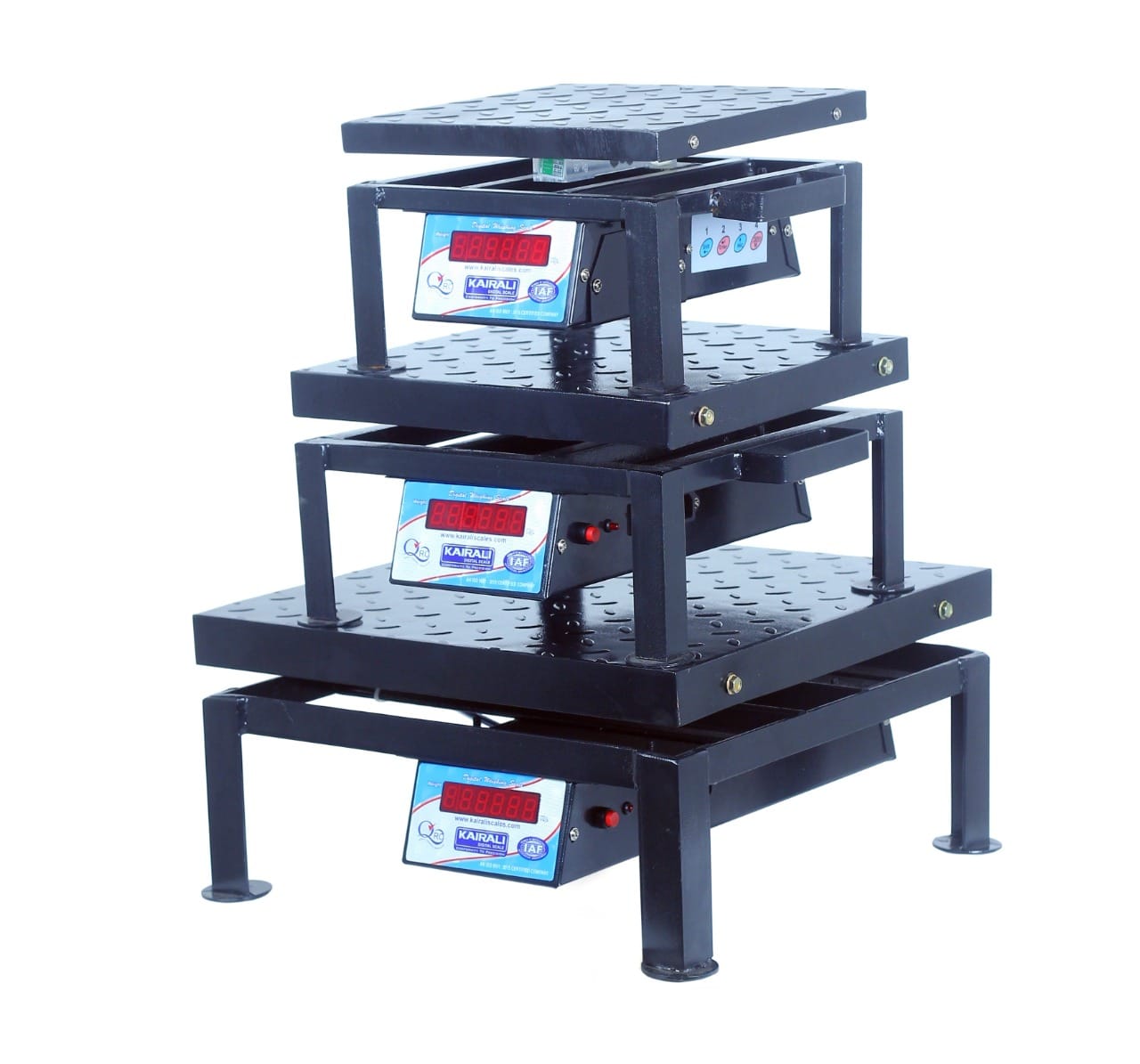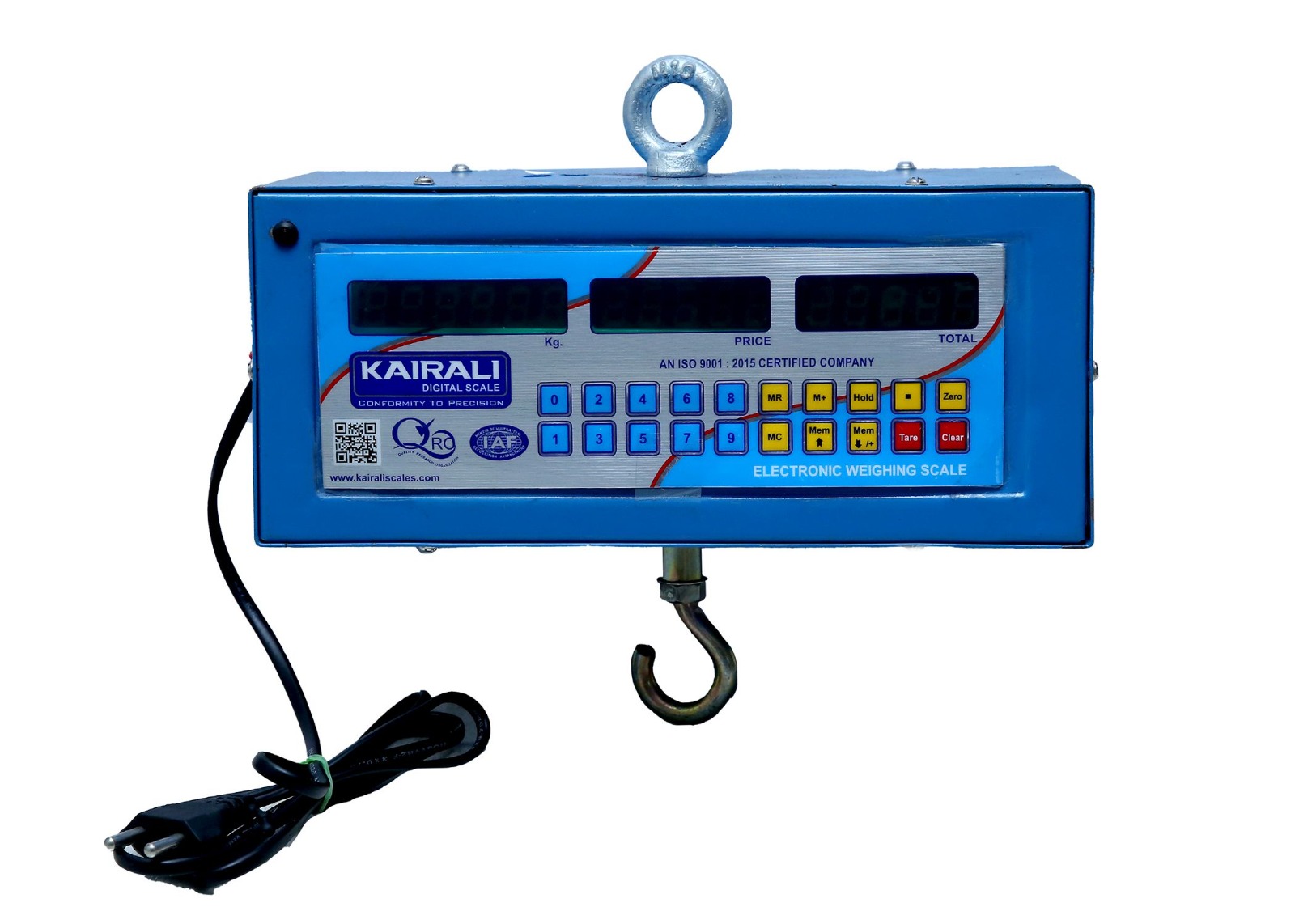Hamdha Scales
Hamdha Scales, Wirerops Junction, Near Kerala Vyaparabhavan, Pukkattypady, Ernakulam, 683561
Since : 2012
Hamdha Scales, Wirerops Junction, Near Kerala Vyaparabhavan, Pukkattypady, Ernakulam, 683561
Since : 2012
A weigh bridge, also known as a truck scale or weighbridge, is a large industrial scale used to weigh vehicles and their contents. These weigh bridges are essential in industries that handle bulk goods, such as logistics, transportation, construction, and manufacturing, to determine the weight of a vehicle and its load. In Ernakulam, the demand for weigh bridges has been steadily growing, driven by the expansion of industrial and commercial activities in the region. Businesses rely on these weigh bridges for accurate weight measurements, ensuring compliance with regulations and improving operational efficiency.
This article will discuss what a weigh bridge is, its availability in Ernakulam, and what customers expect when purchasing or using a weigh bridge in the region. A weigh bridge is a heavy-duty scale designed to weigh large vehicles, including trucks, trailers, and containers, along with their cargo. Weigh bridges are typically installed on a flat surface or in a pit and can accommodate a wide range of vehicle sizes and weights. These systems work by measuring the weight of a vehicle either before or after loading, helping businesses determine the weight of goods being transported.
Weigh bridges are primarily used in industries that deal with bulk goods such as construction materials, agricultural products, and chemicals. They are essential for ensuring that vehicles comply with legal weight limits, avoiding overloading, and preventing damage to roads and infrastructure.
Hamdha Scales
Address: Wirerops Junction, Near Kerala Vyaparabhavan, Pukkattypady, Ernakulam, 683561
TCR International Ltd.
Address: TCR Tower, MG Road, Kochi, Kerala, 682011
Kochi Printers
Address: S.A. Road, Kaloor, Kochi, Kerala, 682017
M3 Solutions
Address: Kacheripady, Kochi, Kerala, 682018
VST Enterprises
Address: Fort Kochi, Kerala, 682001
Sree Muruga Traders
Address: MG Road, Kochi, Kerala, 682016
DigiTech Solutions
Address: Aluva, Kochi, Kerala, 683101
S I Technologies
Address: Kaloor, Kochi, Kerala, 682017
Kochi Systems
Address: Marine Drive, Kochi, Kerala, 682031
Kudumbashree InfoTech
Address: Tripunithura, Kochi, Kerala, 682301
A weigh bridge, also known as a truck scale or weigh station, is a large industrial scale used to weigh heavy vehicles such as trucks, trailers, and other commercial transport vehicles. Weigh bridges are essential in industries that involve the movement of goods in bulk, such as logistics, construction, agriculture, mining, and waste management. These systems help ensure legal compliance, safety, and efficient transport operations.
In this detailed guide, we will explore what weigh bridges are, their importance in various industries, types of weigh bridges available, and answers to frequently asked questions.
A weigh bridge is a large platform scale typically installed in a fixed location, such as at entrances or exits of industrial or commercial sites. It is used to weigh vehicles and their contents to determine the load weight, either for monitoring, compliance with transportation regulations, or billing purposes. Weigh bridges can be either pit-mounted or surface-mounted, and they are often equipped with software to record and manage data automatically. These scales are designed to handle heavy-duty operations and can weigh vehicles up to several tons. Some systems are integrated with automated technology to enhance accuracy, efficiency, and data management.
Weigh bridges play a crucial role in several industries by providing accurate weight measurements for vehicles and goods. Here’s how they benefit specific industries:
Pit Type
Weighbridge:
Deck Type
Weighbridge:
Portable
Weighbridge:
Above
Ground Weighbridge:
Axle
Weighbridge:
Electronic
Weighbridge:
Mechanical
Weighbridge:
Railway
Weighbridge:
Vehicle
Weigh-in-Motion (WIM) Weighbridge:
Static
Weighbridge:
Accuracy
and Precision:
Durability
and Strength:
Load
Cells:
High
Capacity:
Ease of
Use:
Vehicle
Identification Systems (VIS):
Automated
Weighing:
Real-Time
Data Processing:
Software
Integration:
Weather
and Environmental Resistance:
Safety
Features:
Data
Logging and Reporting:
Ease of
Maintenance:
Customization
Options:
Multi-Vehicle
Weighing:
1. What is the purpose of a weigh bridge?
A weigh bridge is used to measure the weight of
vehicles and their cargo, ensuring that they are within legal weight limits,
preventing overloading, and helping industries track the amount of material
transported.
2. What types of businesses need a weigh
bridge?
Weigh bridges are commonly used in industries such as
logistics, construction, mining, agriculture, waste management, and
manufacturing, where goods are transported in bulk by trucks or trailers.
3. How does a weigh bridge work?
A weigh bridge works by using load cells that are
placed beneath the platform. When a vehicle drives onto the platform, the load
cells measure the weight of the vehicle and its cargo, which is then displayed
on a monitor or recorded by connected software.
4. What is the difference between a
pit-mounted and a surface-mounted weigh bridge?
A pit-mounted weigh bridge is installed at ground
level, with the platform in a pit, while a surface-mounted weigh bridge is
placed above ground with ramps leading onto the platform. Pit-mounted weigh
bridges save space but require more complex installation, whereas
surface-mounted weigh bridges are easier to install and relocate.
5. How accurate are weigh bridges?
Weigh bridges are highly accurate when properly
maintained and calibrated. They are designed to meet legal standards for weight
measurement, and modern systems use advanced sensors to ensure precise
readings.
6. How often should a weigh bridge be
calibrated?
Weigh bridges should be calibrated regularly,
depending on the level of use and industry requirements. Calibration ensures
that the system provides accurate weight readings and meets legal and
operational standards.
7. What is the cost of installing a weigh
bridge?
The cost of installing a weigh bridge varies depending
on the type, size, and capacity. Pit-mounted weigh bridges are typically more
expensive due to the excavation required, while surface-mounted and portable
weigh bridges are more affordable.
8. Can weigh bridges be used in extreme
weather conditions?
Yes, weigh bridges are designed to withstand harsh
weather conditions, including heavy rain, snow, and extreme temperatures.
However, regular maintenance and protection measures should be taken to ensure
continued functionality.
9. Do weigh bridges require special
permits or approvals?
In many countries, weigh bridges must meet certain
legal requirements and certifications. Depending on the location and intended
use, special permits or approvals may be required to install and operate a
weigh bridge.
10. Can weigh bridges be integrated with
other systems?
Yes, modern weigh bridges can be integrated with
software systems for data collection, analysis, and reporting. They can also be
connected to fleet management systems, ERP software, and other business tools
for seamless operations.

Ernakulam, Pukkattypady

Ernakulam, Pukkattypady